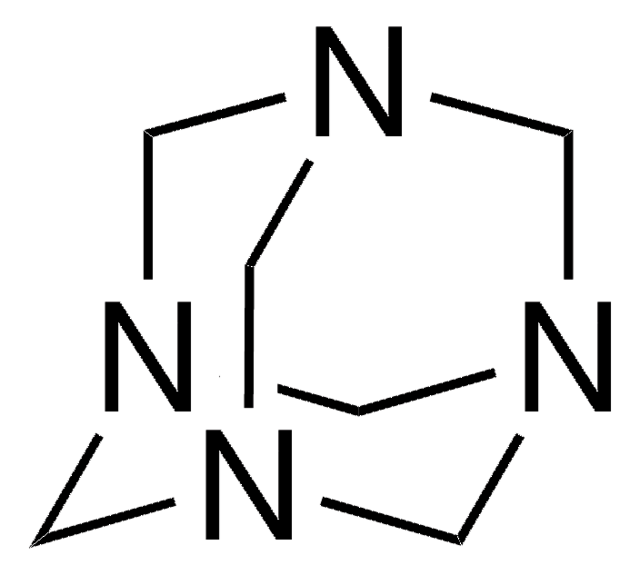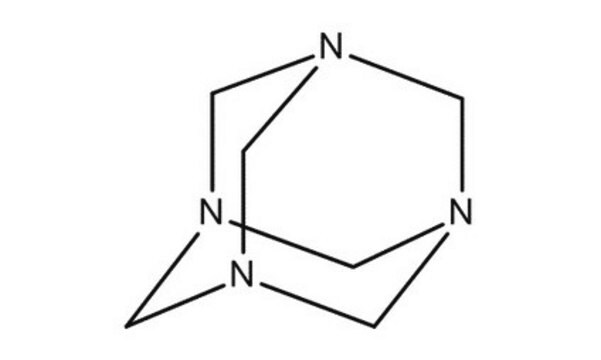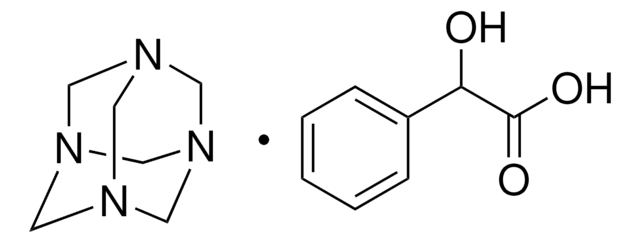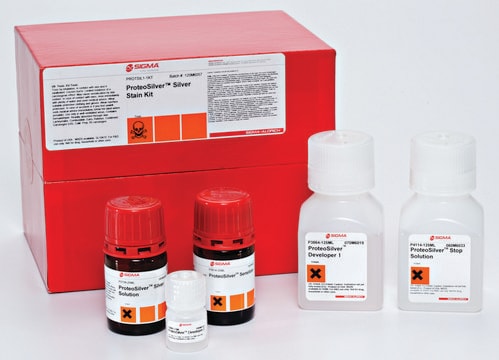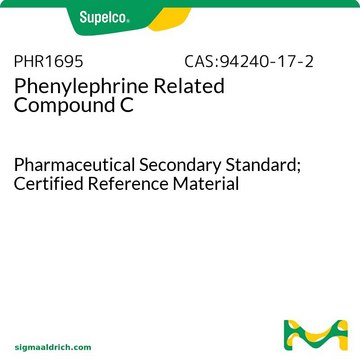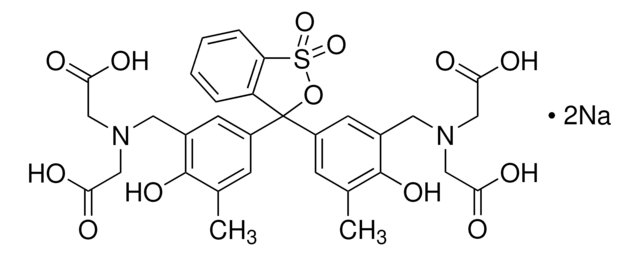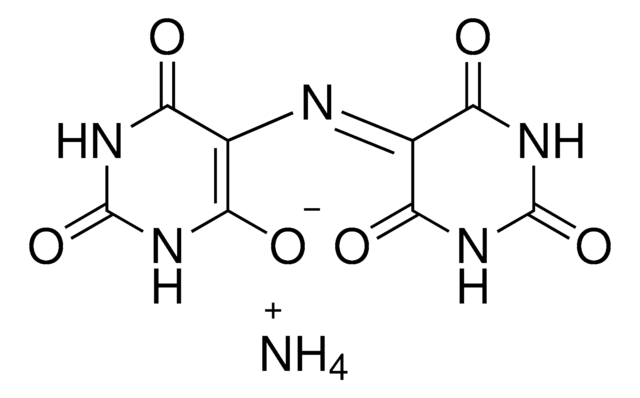Y0000754
Methenamine
European Pharmacopoeia (EP) Reference Standard
Synonym(s):
Hexamethylenetetramine, 1,3,5,7-Tetraazatricyclo[3.3.1.13,7]decane, Hexamine, Methenamine, Urotropine
About This Item
Recommended Products
grade
pharmaceutical primary standard
vapor pressure
<0.01 mmHg ( 20 °C)
API family
methenamine
autoignition temp.
770 °F
manufacturer/tradename
EDQM
mp
280 °C (subl.) (lit.)
application(s)
pharmaceutical (small molecule)
format
neat
storage temp.
2-8°C
SMILES string
C1N2CN3CN1CN(C2)C3
InChI
1S/C6H12N4/c1-7-2-9-4-8(1)5-10(3-7)6-9/h1-6H2
InChI key
VKYKSIONXSXAKP-UHFFFAOYSA-N
Looking for similar products? Visit Product Comparison Guide
General description
Application
Packaging
Other Notes
Signal Word
Warning
Hazard Statements
Precautionary Statements
Hazard Classifications
Flam. Sol. 2 - Skin Sens. 1B
Storage Class Code
4.1B - Flammable solid hazardous materials
WGK
WGK 1
Flash Point(F)
482.0 °F - closed cup
Flash Point(C)
250 °C - closed cup
Regulatory Listings
Regulatory Listings are mainly provided for chemical products. Only limited information can be provided here for non-chemical products. No entry means none of the components are listed. It is the user’s obligation to ensure the safe and legal use of the product.
PRTR
Class I Designated Chemical Substances
ISHL Indicated Name
Substances Subject to be Indicated Names
ISHL Notified Names
Substances Subject to be Notified Names
JAN Code
Y0000754:
Y0000754-10MG:
Y0000754-1EA:
Choose from one of the most recent versions:
Certificates of Analysis (COA)
Sorry, we don't have COAs for this product available online at this time.
If you need assistance, please contact Customer Support.
Already Own This Product?
Find documentation for the products that you have recently purchased in the Document Library.
Customers Also Viewed
Our team of scientists has experience in all areas of research including Life Science, Material Science, Chemical Synthesis, Chromatography, Analytical and many others.
Contact Technical Service